
Johann Baptist Joseph Maximilian Reger was a German composer, pianist, organist, conductor, and academic teacher. He worked as a concert pianist, a musical director at the Leipzig University Church, a professor at the Royal Conservatory in Leipzig, and a music director at the court of George II, Duke of Saxe-Meiningen.

The Karlsruhe Institute of Technology is both a German public research university in Karlsruhe, Baden-Württemberg, and a research center of the Helmholtz Association.
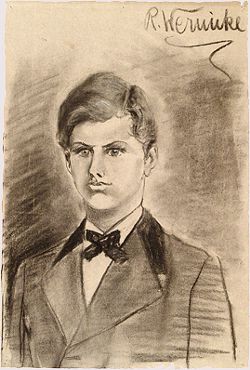
Wilhelm Reinhard Berger was a German composer, pianist and conductor.
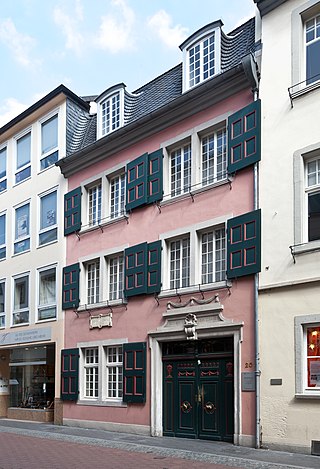
The Beethoven House in Bonn, Germany, is a memorial site, museum, and cultural institution serving various purposes. Founded in 1889 by the Beethoven-Haus association, it studies the life and work of composer Ludwig van Beethoven.

Max Reger's 1915 Requiem, Op. 144b, is a late Romantic setting of Friedrich Hebbel's poem "Requiem" for alto or baritone solo, chorus and orchestra. It is Reger's last completed work for chorus and orchestra, dedicated in the autograph as Dem Andenken der im Kriege 1914/15 gefallenen deutschen Helden.

The Bach-Archiv Leipzig or Bach-Archiv is an institution for the documentation and research of the life and work of Johann Sebastian Bach. The Bach-Archiv also researches the Bach family, especially their music. Based in Leipzig, the city where Bach lived from 1723 until his death, the Archiv is recognised by the German government as a "cultural beacon" of national importance. Since 2008 the Bach-Archiv has been part of the University of Leipzig.

The Baden State Library is a large universal library in Karlsruhe. Together with the Württembergische Landesbibliothek, the BLB is the legal deposit and regional library for Baden-Württemberg.

Caroline Y. Robertson-von Trotha is a Scottish sociologist and cultural scientist, working in Germany.
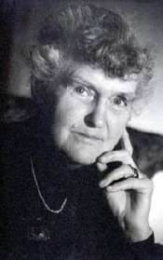
Margarete Ulrike Augusta Marie Karoline Elsa Reger was a German writer, the wife of the pianist and composer Max Reger, whose memory she kept alive by founding an archive, the Max-Reger-Institute, and a foundation, all dedicated to him and his work. The foundation is now named after her.
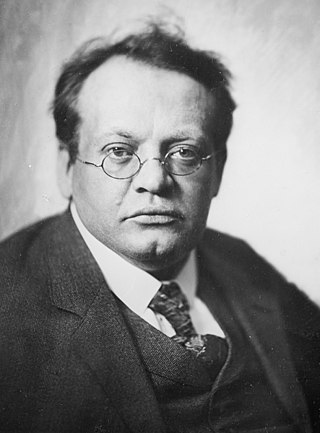
Eine romantische Suite, Op. 125, is a suite for orchestra by Max Reger, based on poems by Joseph von Eichendorff. Reger described this suite, composed and first performed in 1912, and the Vier Tondichtungen nach A. Böcklin, Op. 128, as "Ausflug in das Gebiet der Programmusik".

Drei Chöre, Op. 6, is a set of three compositions for mixed choir and piano by Max Reger, composed before 2 August 1892 in Wiesbaden. The texts are poems by three poets:
- Trost
- Zur Nacht
- Abendbild
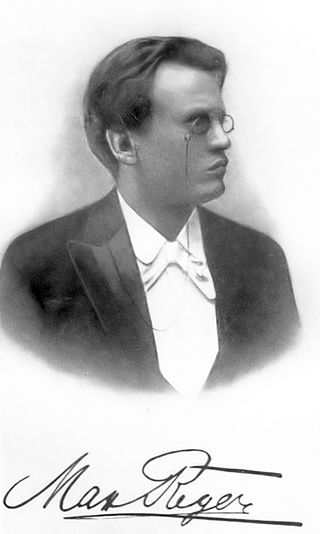
Zwei Choralphantasien, Op. 40, are fantasias for organ by Max Reger. He composed the fantasias in 1899 on two chorales: "Wie schön leucht't uns der Morgenstern" and "Straf mich nicht in deinem Zorn" They were published by Musikverlag Josef Aibl in Munich in May 1900.

Ein' feste Burg ist unser Gott, Op. 27, is a chorale fantasia for organ by Max Reger. He composed it in 1898 on Luther's hymn "Ein feste Burg ist unser Gott". The full title is Phantasie über den Choral "Ein' feste Burg ist unser Gott".

Peter Nick is a German molecular biologist, and head of Molecular Cell Biology at the Karlsruhe Institute of Technology (KIT), and long-standing Academic Dean for Chemistry und Biology, He was co-initiator of the Forum for Critical Transdisciplinary Studies (FKI) and recipient of the State Teaching Award of Baden-Württemberg in 2015.

The Responsories by the German composer Max Reger are 20 short settings of mostly biblical texts in English, to be used as responsories in Lutheran church services. Composed in 1911, they were first published in Philadelphia in 1914 as The Responsories.

Introduction, Passacaglia and Fugue in E minor, Op. 127, is an extended composition for organ by Max Reger, composed in 1913 and dedicated to Karl Straube who played the premiere in Breslau on 24 September. It was published in November that year in Berlin by Bote & Bock.
Wolfgang Rathert is a German musicologist.
Siegfried Schmalzriedt was a German musicologist, University lecturer and vice-rector of the Hochschule für Musik Karlsruhe.

Ewald Grothe is a German historian. Since 2009 he has been an extraordinary professor at the Bergische Universität Wuppertal and since 2011 he has been head of the Archive of Liberalism of the Friedrich Naumann Foundation for Freedom in Gummersbach.
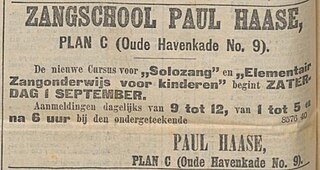
Hermann Paul Max Haase was a German baritone who partially lived and worked in the Netherlands.
















